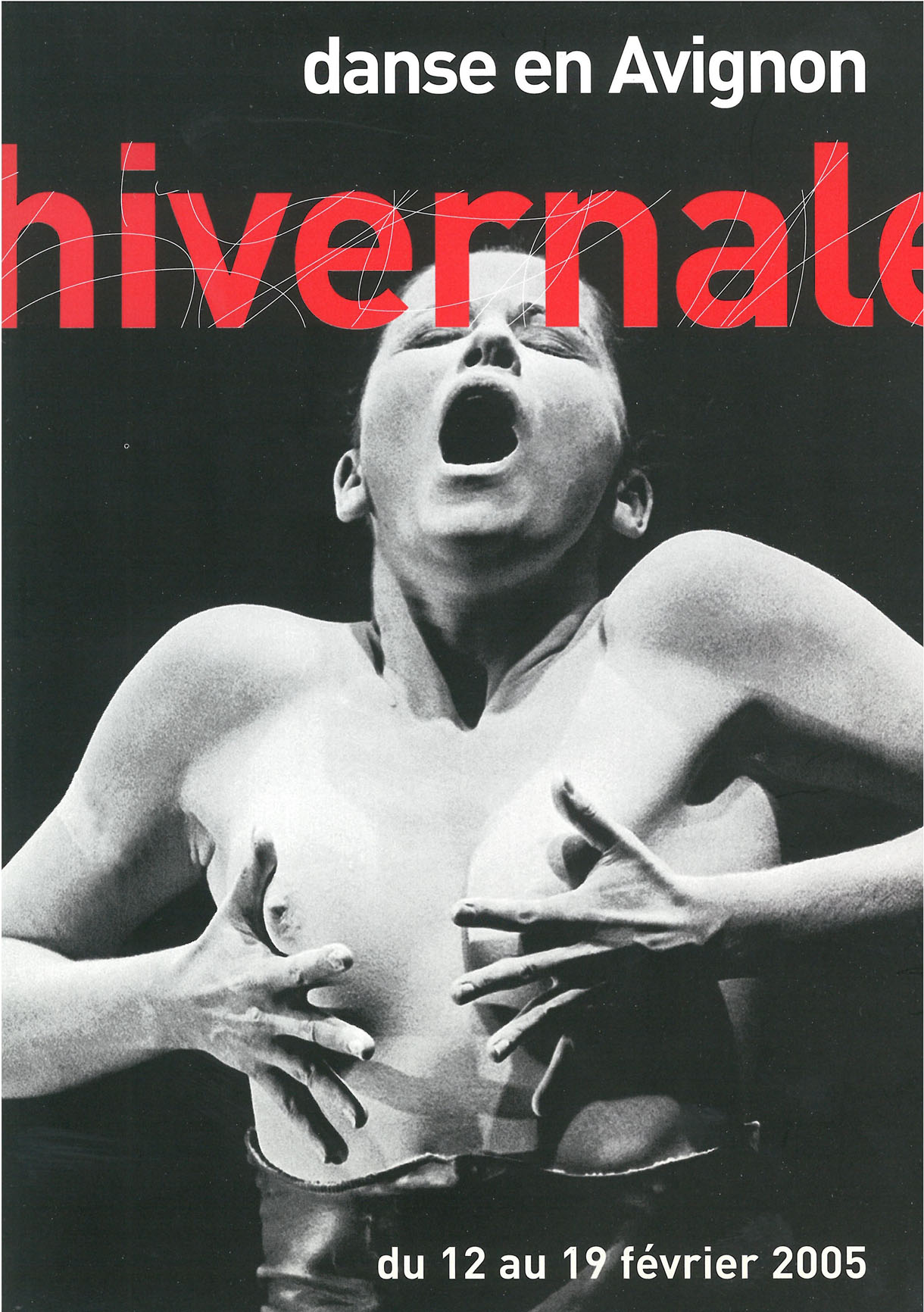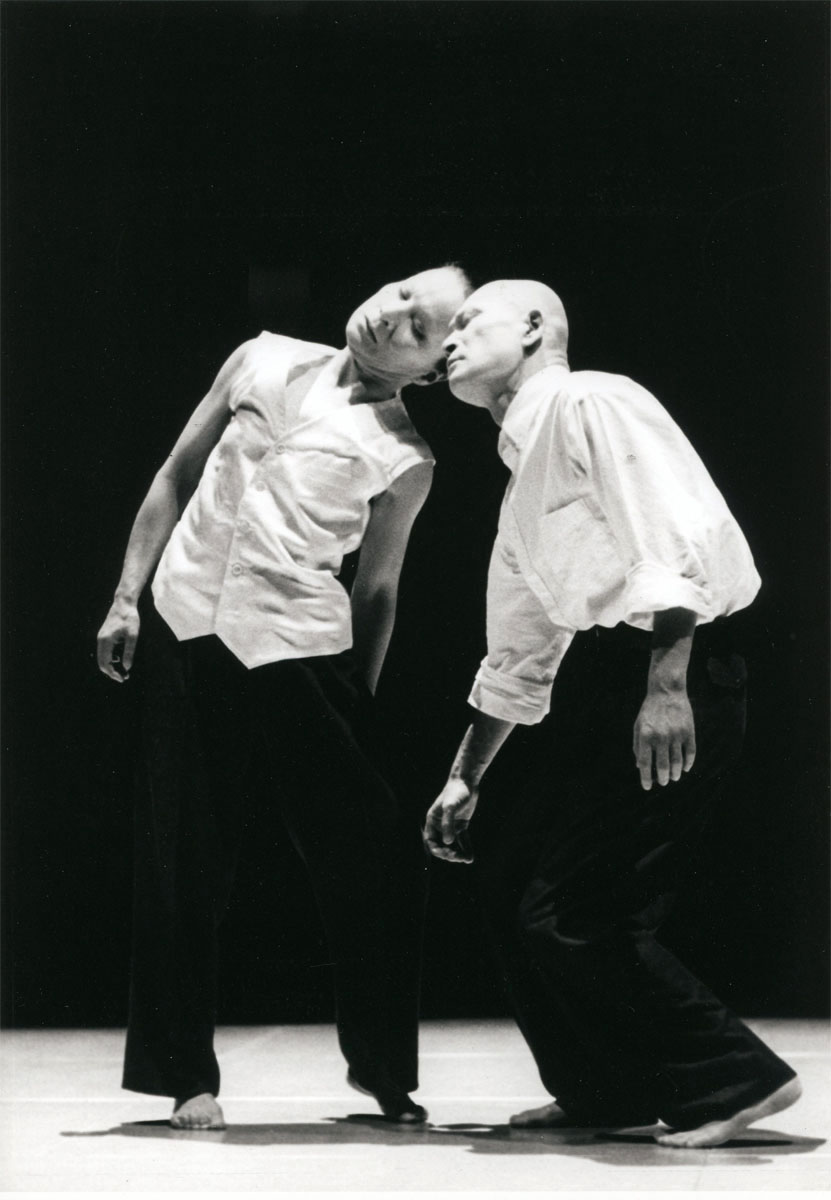

The duo performance “Ai AMOUR” with Carlotta Ikeda at Teatro de la Bastille begins with a long scene in which Ikeda lightly puts her head on his shoulder as they stand next to each other. Taking their time, they swing and become tangled.
The title is based on the meaning of “ai = avoir,” with “ai (love)” and “itai (pain)” in terms of sickness. It is a piece that hints at the delicate relationship between man and woman, and constructs a space just for the two of them by showing the tolerance and ambiguity of the Japanese, and moreover the bold body that jolts the sensibility of the French.
Not only the French, but also Europeans with higher education, in general, do not want to relinquish the privilege that they have built with their lives. Ko Murobushi’s Butoh shook that and penetrated the intelligence of the European people. Ko Murobushi cuddles close to Carlotta Ikeda, and upon showing a slovenly body as he bends his knee, he stands up straight like a subject of worship. It is the moment in which he lets out his doubts of the universe that he had always had and presents his self-consciousness as a noble outlaw.
Roku Hasegawa
the Ko Murobushi Memorial Anthology
